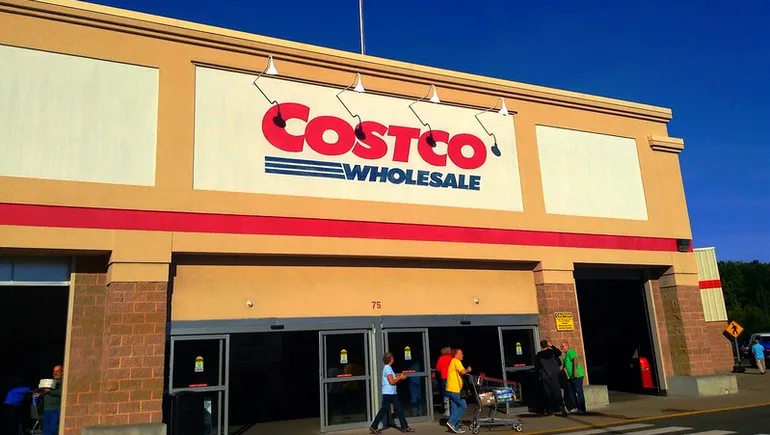Costco’s recent rejection of a shareholder proposal challenging its diversity, equity, and inclusion (DEI) policies may not have broken new ground, but it certainly made a statement. While many companies have retained their diversity policies due to their positive impact on decision-making and business goals, Costco’s forceful response to the proposal stood out in a landscape where some major companies have retreated from their DEI programs.
Last month, Costco issued a response within its 2024 proxy statement to the National Center for Public Policy Research, a conservative think tank and Costco shareholder that had submitted a proposal questioning the risks of the company’s DEI initiatives. The board of directors unanimously recommended voting against the proposal, citing confidence in Costco’s adherence to the law, the benefits of its diversity policies to relationships with customers, suppliers, and employees, and the positive impact on shareholders.
Costco’s response not only defended its DEI efforts but also challenged the motives of the NCPPR, accusing the organization of pursuing a political agenda that seeks to abolish diversity initiatives. The board corrected what it deemed as misleading claims by the NCPPR and placed the responsibility for burdens on companies on the proponents of challenges to longstanding diversity programs.
Alison Taylor, a professor at New York University’s Stern School of Business, noted that Costco’s response was both vigorous and specific, focusing on valid business reasons for its diversity policies rather than profitability arguments. While some critics question the business case for diversity, Costco emphasized its culture, values, and customer preferences as the basis for its DEI efforts.
As companies face pressure from legal and marketing departments regarding DEI policies, the decision to defend or retract these initiatives becomes a complex one. Taylor highlighted the uncertainty surrounding the future of DEI in the face of potential backlash from anti-DEI proponents and the evolving workforce landscape with the entry of Gen Z employees.
Looking ahead to 2025, Costco’s stance on DEI could set a precedent for other companies. The retailer’s commitment to diversity and inclusion as integral parts of its business strategy aligns with its brand identity and values. While some may view DEI rollbacks as a risk-mitigation strategy, Costco’s approach suggests that the benefits of diversity go beyond profitability, contributing to a strong company culture and customer loyalty.
In a time when DEI issues are at the forefront of corporate discussions, Costco’s resolute defense of its diversity policies sends a clear message that these initiatives are not just about compliance but also about creating a more inclusive and sustainable business environment. As the fifth-largest retailer in the world, Costco’s stance on DEI sets a powerful example for the industry and reinforces the importance of diversity as a driver of business success. Costco, a company known for its commitment to providing the best pay and working conditions in the industry, has faced criticism from shareholders for its unwavering dedication to what it sees as the keys to its success. Despite this grumbling, Costco has maintained its stance and continues to prioritize employee well-being and satisfaction.
In the realm of Diversity, Equity, and Inclusion (DEI), Costco is no different. The company views DEI as an integral part of its successful business model and is not easily swayed by external pressure to change its policies. This steadfast commitment to DEI is unlikely to negatively impact Costco’s strong membership retention or hinder its domestic and international growth.
According to industry experts, Costco’s refusal to back down on its DEI policy may even serve as a model for other companies facing similar controversies. By standing firm in its beliefs, Costco demonstrates that it is possible to navigate the DEI debate without compromising core values.
Author Alison Taylor, known for her work on corporate responsibility and ethical business practices, believes that Costco’s approach to DEI could spark a fresh conversation in the business world. She notes that the company’s resilience in the face of criticism can inspire other organizations to rethink their own strategies regarding diversity and inclusion.
Taylor suggests that Costco’s handling of the DEI controversy may provide a blueprint for other companies looking to address similar issues. By taking the lead and facing criticism head-on, Costco paves the way for others to follow suit and embrace a more inclusive approach in their operations.
Overall, Costco’s stance on DEI serves as a reminder that prioritizing diversity and inclusion is not just a moral imperative, but also a strategic business decision. By upholding its values and refusing to compromise on its commitment to DEI, Costco sets a positive example for the industry and encourages others to follow suit.
In conclusion, Costco’s unwavering dedication to providing the best pay and working conditions, as well as its strong stance on DEI, showcases the company’s commitment to its employees and its values. By staying true to its core principles, Costco not only sets itself apart in the industry but also inspires others to prioritize ethical business practices and create a more inclusive work environment.




